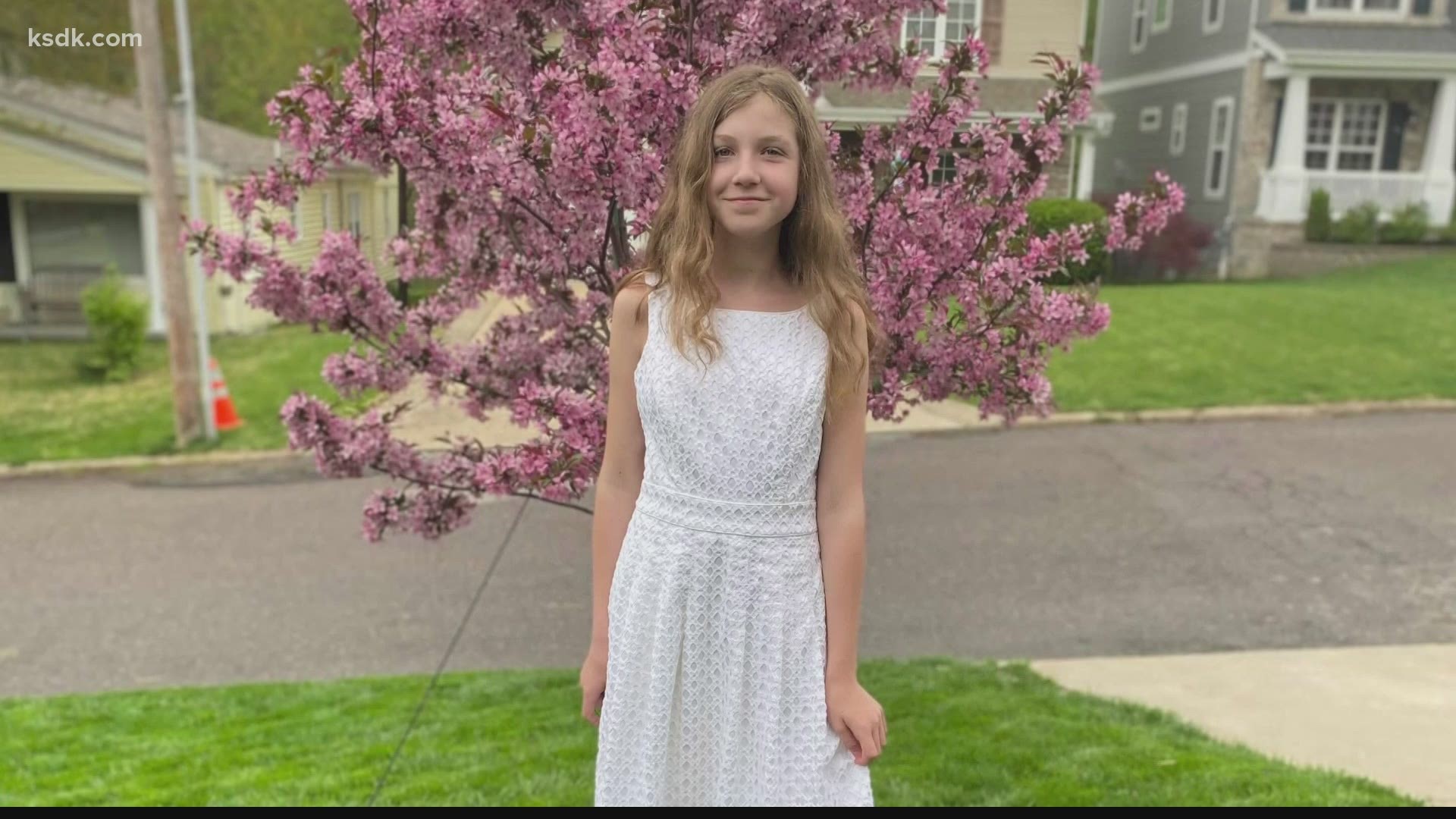ST. LOUIS — Work is happening right here in St. Louis to help protect children from COVID-19.
Several trials are happening, including one in Chesterfield.
Clinical Research Professionals claims it's the highest enrolling site for Pfizer in the entire country for both adults and children.
Two-hundred children filled up spots to get a shot at immunity.
This research institute got involved with Pfizer since it has partnered with the company before on other trials.
From there, it first started with adults in August.
Then, Pfizer gave clearance to trickle that down, Letting children 12 to 15 years old get involved.
"We agreed to participate in the 12-to-15 and the response was overwhelming. We ended up being the highest enroller of the adolescents in the country as well," Marianne Tow, the director of Clinical Research Professionals says.
Lizzy Buckhold, 13, heard a friend was in the study, so she played follow the leader.
"I wanted to do it too, and I asked my mom," Lizzy said.
Her dad, Dr. Fred Buckhold, is a doctor at SLU Hospital and jumped on board.
He was excited one of his girls was getting involved in science.
"We thought the benefit of getting the actual vaccine was pretty worth it. I think it just shows as a physician, it’s important I’m comfortable with my own family and loved ones in scientific research and teachings," he says.
"The children and adult trials are the same," Tow said. "They got the same doses at the same concentrations that are the currently approved doses."
For Lizzy, her experience started in January.
"I was nervous when I went in," she said. "They had us take out those coronavirus tests like the one in your nose. I got my blood drawn. Then more waiting and got the vaccine. It doesn’t hurt for like a long time, if it even hurts at all, it doesn’t hurt some people at all. It's not scary honestly."
Currently, the teens are still blinded to their treatment assignment.
All have received the first two doses of the placebo or the real deal.
Lizzy thinks she got the vaccine because of her headache and achy arm.
Since getting both shots, all participants have to communicate weekly with any symptoms or lack of.
For those who got the placebo in this trial, they will still get the vaccine afterward.
Tow said many children were involved after their parents or family members participated in the adult vaccine trials.
Many decided to participate for different reasons, but some just wanted to help.
"People wanted to be a part of the solution," Tow said.
As for the physician investigators, Tow said it was important to get these children's studies up and running.
"The need to get down to school-age children vaccinated is what’s going to curb this pandemic," she said.
Results for this study could be this summer.
After the last vaccinations, doctors will continue to follow up with these children 18 months to two years after to make sure things are OK.
Currently, the Pfizer vaccine is authorized for ages 16 and up.
Pfizer's principal investigator thinks for children 12 and above, a vaccine could be available before the next school year.
Younger children will likely have to wait until next spring.
Moderna and Johnson & Johnson are also working on vaccines for children.

